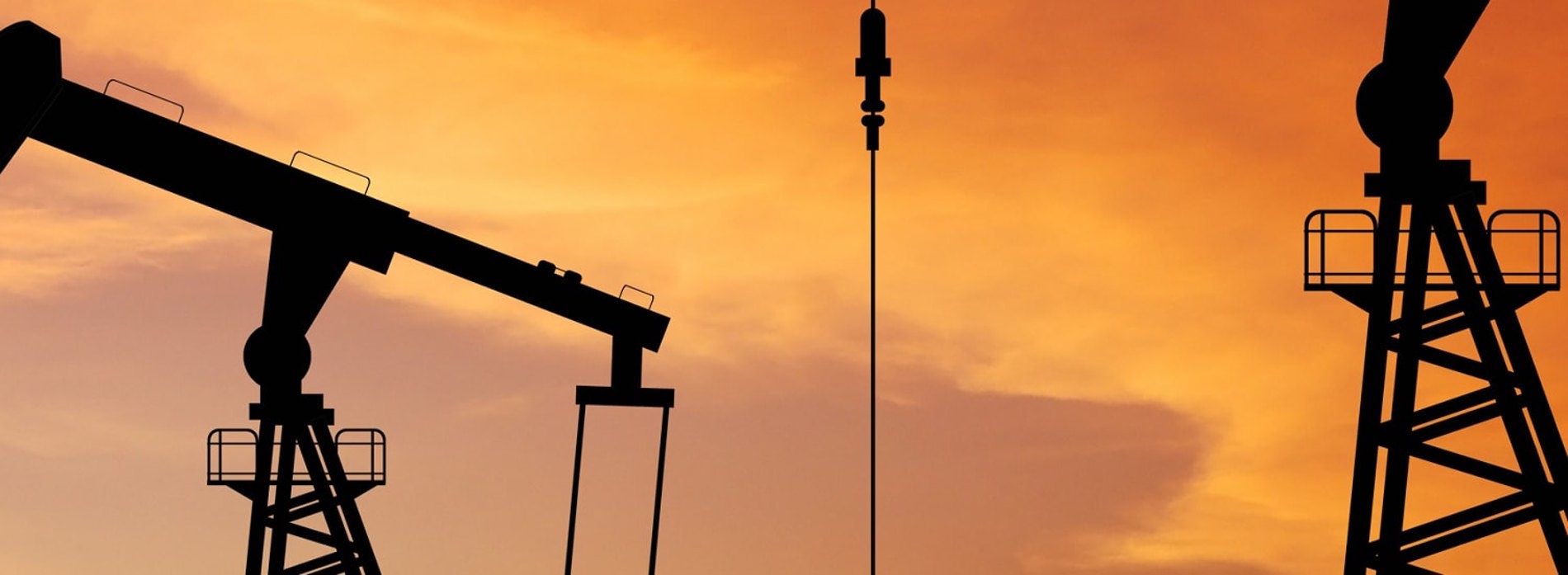
Blog

Top Reservoir Engineering Services for Maximizing Oil and Gas Production
Key Takeaways
Reservoir engineering optimizes oil and gas production through accurate reservoir characterization and performance prediction, employing advanced modeling and simulation techniques.
Data plays a crucial role in reservoir engineering, enabling engineers to make informed decisions and develop effective recovery strategies based on real-time monitoring and analysis.
On-the-job training and continuous professional development are essential for reservoir engineers to remain competitive and effectively tackle industry challenges.
Understanding Reservoir Engineering Services

Reservoir engineering services optimize oil and gas production by accurately characterizing reservoirs and predicting their performance to maximize hydrocarbon recovery. Reservoir engineers integrate knowledge from geology, engineering, and applied mathematics to enhance the extraction process, making it a multidisciplinary field that requires a deep understanding of various scientific and technical principles.
Reservoir engineers use sophisticated techniques to analyze geological data and fluid properties, allowing them to predict extractable oil and gas quantities and optimize production strategies. Companies like Eagle Reservoir Services are at the forefront of this field, recognized for their exceptional service quality and state-of-the-art equipment. Their team of skilled engineers brings extensive field experience, ensuring that every project benefits from the latest advancements in technology and best practices, including insights into oil and gas reservoirs.
Eagle Reservoir Services exemplifies the commitment to high-quality service in reservoir monitoring. Utilizing cutting-edge technology and a skilled workforce, they offer comprehensive solutions to address each reservoir’s unique challenges. This dedication to excellence sets them apart as leaders in the industry, helping clients achieve significant improvements in production efficiency and overall reservoir performance.
Key Responsibilities of Reservoir Engineers
Reservoir engineers assess extractable oil and gas quantities by analyzing geological data and fluid properties, developing accurate reservoir characterizations. They are primarily responsible for using advanced computer modeling techniques. Additionally, they employ simulation software to assess reservoir performance and forecast production behavior. These models are essential for making informed decisions about production strategies and optimizing resource recovery.
Reservoir engineers also use production logging to identify contributions of different zones in wells, aiding in the determination of flow rates and fluid properties. Geomechanical modeling is another critical aspect of their responsibilities, as it helps understand the interaction between geological formations and stresses. They analyze stress fields, rock properties, pore pressure, fracture networks, and fault boundaries to optimize hydrocarbon extraction.
Wellbore stability analysis prevents well collapse during drilling, ensuring safe and efficient operations. Geomechanics provides insights into reservoir rock behaviors under stress conditions.
Understanding these interactions allows reservoir engineers to devise strategies that enhance hydrocarbon recovery, minimize risks, and improve reservoir performance. Their expertise and innovative approaches are crucial for the successful management and optimization of reservoir resources.
Advanced Techniques in Reservoir Engineering

The field of reservoir engineering has seen significant advancements with the introduction of cutting-edge technological tools and methods. AI-driven systems and enhanced oil recovery methods have revolutionized oil and gas fields extraction, increasing efficiency and effectiveness. Innovative surveillance techniques like digital twin technology enable real-time monitoring and decision-making, allowing engineers to respond swiftly to changing conditions.
Reservoir modeling, which involves advanced mathematics, effectively simulates reservoir behaviors. This includes fluid dynamics modeling, which is crucial for optimizing well placement and recovery strategies. These models help reservoir engineers assess and enhance hydrocarbon extraction, ensuring decisions are backed by thorough analysis and accurate predictions. Pressure transient analyses are also conducted to understand fluid behavior and predict pressure changes, providing valuable insights into the reservoir’s performance.
Reserves calculations predict the total volume of hydrocarbons available for extraction. These calculations, coupled with transient testing, provide data that help predict fluid flow patterns and pressures in reservoirs. Cost-effective strategies in reservoir engineering focus on optimizing resource recovery while minimizing operational expenses, ensuring that projects remain financially viable. Implementing these advanced techniques significantly improves the efficiency and profitability of oil and gas extraction projects.
Professional organizations like the Society of Petroleum Engineers (SPE) prioritize incorporating AI and innovative technologies into reservoir management. These advancements not only enhance the diagnostic capabilities of reservoir engineers but also pave the way for more sustainable and efficient extraction methods. As the industry continues to evolve, the adoption of these advanced techniques will become increasingly important for maximizing oil and gas production and ensuring long-term resource sustainability.
The Role of Data in Reservoir Engineering
Data plays a central role in reservoir engineering, underpinning every decision and strategy implemented by reservoir engineers. Systematic monitoring of reservoir performance ensures efficient resource management and optimized hydrocarbon recovery. Technologies like microseismic monitoring and 3D seismic imaging enhance data accuracy, providing real-time insights and enabling precise predictions.
Simulation software integrating geomechanical properties is essential for accurate performance forecasting. These tools enable engineers to develop robust recovery strategies considering complex interactions within reservoir rock and fluid systems. Data on fluid properties, geological formations, and stress conditions are critical inputs, influencing recovery predictions and helping devise effective extraction plans.
Collaboration with geoscientists and participation in professional organizations facilitate knowledge exchange, enabling reservoir engineers to stay updated on best practices and the latest advancements in the field. Leveraging industry expertise allows engineers to adopt innovative approaches and continuously improve their strategies.
The role of data in reservoir engineering cannot be overstated, as it is the foundation upon which successful and efficient resource extraction is built.
Importance of On-The-Job Training for Reservoir Engineers
On-the-job training equips reservoir engineers with practical experience to apply theoretical knowledge in real-world scenarios. Internships and related work experiences provide valuable insights into industry operations and technical challenges, helping engineers develop specialized skills for analyzing reservoir performance and implementing recovery strategies.
Hands-on training fosters collaboration skills, as engineers often work closely with geoscientists and production teams. Practical experience from on-the-job training enables engineers to effectively split their time between office work (data analysis and simulations) and field evaluations at drilling sites.
This comprehensive approach ensures engineers are well-prepared to tackle industry challenges and contribute to successful reservoir optimization.
Essential Skills for Successful Reservoir Engineers

To succeed in reservoir engineering, professionals must possess a diverse set of skills. Technical expertise in computer-based modeling and advanced technology is essential for analyzing reservoir performance and developing effective recovery strategies. Lifelong learning is also crucial, as the oil and gas industry is rapidly evolving with new technologies and methodologies.
Effective communication enables engineers to relay complex technical details to non-technical stakeholders and collaborate with diverse teams. Creativity is necessary for developing custom tools and methodologies tailored to specific reservoir challenges, ensuring adaptability and innovative solutions.
Adaptability is crucial for addressing unique challenges effectively in different environments. Combining these skills ensures engineers are well-equipped to handle industry complexities and contribute to successful reservoir optimization. Continuous learning and skill development are essential for staying competitive and achieving long-term success in this dynamic field.
Career Opportunities in Reservoir Engineering

Reservoir engineering offers diverse career opportunities for a reservoir engineer, from entry-level to advanced roles, catering to various skills and expertise for professionals seeking to impact the oil and gas industry. Petroleum engineering training courses enhance candidates’ expertise, making them more competitive and better prepared for technical challenges.
Understanding sought-after qualifications helps engineers in career research, ensuring they meet necessary job criteria. Entry-level positions typically receive lower salaries compared to mid to senior-level roles, reflecting increased responsibilities and expertise required at higher levels. In the United States, reservoir engineers’ average annual salary is about $124,309, highlighting this career path’s financial potential.
Continuous education and practical experience advance careers and achieve significant professional growth for reservoir engineers. The field offers numerous opportunities for those willing to invest in their skills and knowledge, making it an attractive option for aspiring petroleum engineers.
Professional Associations Supporting Reservoir Engineers
Professional associations support reservoir engineers by providing resources, networking opportunities, and career growth avenues. Key associations like the Society of Petroleum Engineers (SPE) and the Society of Petrophysicists and Well Log Analysts (SPWLA) offer valuable support to professionals. Joining industry associations keeps engineers updated on trends, expands networks, and enhances knowledge and skills.
These associations facilitate knowledge sharing through educational programs and access to pivotal technical resources, fostering professional interaction. Participation in these organizations provides mentorship, professional development opportunities, and a sense of community within the industry.
Society of Petroleum Engineers (SPE)
The Society of Petroleum Engineers (SPE) promotes the oil and gas industry. Its mission is to advance the field through various initiatives. SPE provides resources, technical books, events, and networking opportunities for reservoir engineers. Joining SPE allows professionals to access cutting-edge knowledge and connect with peers committed to reservoir engineering excellence.
SPE’s dedication to industry advancement ensures members are well-equipped to tackle field challenges. The organization offers platforms for knowledge exchange, collaboration, and professional growth, making it invaluable for engineers seeking career advancement.
Society of Petrophysicists and Well Log Analysts (SPWLA)
The Society of Petrophysicists and Well Log Analysts (SPWLA) aims to enhance the knowledge and technical capabilities of professionals working with well logs and petrophysics. SPWLA provides access to technical resources and educational programs to support ongoing education for reservoir engineers.
SPWLA initiatives facilitate expert interaction among members, allowing knowledge exchange and collaboration in petrophysics. These efforts contribute significantly to professional growth and development, ensuring engineers remain at the forefront of industry advancements.
Asia Pacific Oil and Gas Conference and Exhibition (APOGCE)
The Asia Pacific Oil and Gas Conference and Exhibition (APOGCE) brings together professionals to exchange knowledge, learn about trends, and network. APOGCE fosters knowledge exchange by providing a platform for professionals to learn about the latest technologies, including natural gas, and industry trends.
Reservoir engineers attending APOGCE access technical presentations, workshops, and exhibitions on the latest technologies. This event provides a valuable opportunity for professionals to stay informed about the latest advancements and connect with industry peers.
Eagle Reservoir Services: Leading the Way in Reservoir Monitoring

Eagle Reservoir Services leads in reservoir and completion monitoring, known for exceptional service quality and state-of-the-art equipment and software. Their team of degreed engineers and experienced professionals ensures clients receive optimal solutions for reservoir performance.
Eagle Reservoir Services caters to oil and gas operators and service providers, offering advanced monitoring technologies for evolving diagnostic needs. Minimizing production downtime and maximizing efficiency, they help clients achieve significant production improvements.
Innovative Solutions by Eagle Reservoir Services
The company offers advanced monitoring technologies to enhance diagnostic capabilities in reservoir management. These innovative solutions improve reservoir performance and ensure efficient resource recovery.
Eagle Reservoir Services’ commitment to innovation ensures clients benefit from the latest advancements in reservoir engineering. Implementing these solutions significantly improves production efficiency and project profitability.
Customer Success Stories
Eagle Reservoir Services has a strong track record of delivering exceptional results, optimizing reservoir performance and enhancing production outcomes. For instance, a Texas client reported a 15% increase in crude oil recovery after utilizing advanced techniques recommended by Eagle Reservoir Services. This improvement underscores the effectiveness of their innovative solutions and engineering team’s expertise.
Another notable success story comes from a client in the North Sea, who highlighted that collaboration with Eagle Reservoir Services led to reduced operational costs by 20%, significantly improving overall project profitability.
Additionally, a third client experienced a substantial enhancement in production rates by 25% within six months of implementing a reservoir engineering solution provided by Eagle Reservoir Services. These examples demonstrate the tangible benefits and impressive outcomes that clients can achieve through their partnership with Eagle Reservoir Services.
Summary
In summary, reservoir engineering plays a critical role in maximizing oil and gas production. By leveraging advanced techniques, data-driven strategies, and continuous on-the-job training, reservoir engineers are well-equipped to tackle the complexities of the industry. Eagle Reservoir Services stands out as a leader in this field, offering innovative solutions and achieving remarkable results for their clients. As the industry continues to evolve, the importance of reservoir engineering and the expertise of companies like Eagle Reservoir Services will only grow, ensuring the efficient and sustainable extraction of our vital energy resources.
Frequently Asked Questions
What type of company is Eagle Reservoir Services?
Eagle Reservoir Services is a specialized company focused on reservoir and completion monitoring. They provide services that ensure effective management of reservoir operations.
What does Eagle Reservoir Services offer?
Eagle Reservoir Services provides exceptional service quality along with state-of-the-art equipment and software. Their commitment to excellence ensures top-tier support and efficiency in their operations.
Who comprises the resource base of Eagle Reservoir Services?
The resource base of Eagle Reservoir Services comprises degreed engineers and individuals with decades of field experience, ensuring a strong foundation of expertise in the industry.
Who are the customers of Eagle Reservoir Services?
Eagle Reservoir Services primarily serves oil and gas operators and various service providers within the industry.
How does Eagle Reservoir Services improve reservoir performance?
Eagle Reservoir Services enhances reservoir performance through advanced monitoring technologies and innovative solutions, leading to increased production efficiency and profitability.
COMPANY NEWSLETTERS
